Presentation
This year’s Rio Conference on Sustainable Development echoes the summit that took place in 1992. It is entitled “Rio+20”, as if a simple and direct line connected 1992 to 2012. In twenty years, however, the world has changed a lot. It became globalized and the centers of production of wealth have shifted. Today, the economic and political rise of emerging countries takes place against the backdrop of a four-fold environmental, social, financial and political crisis among old industrial countries. This phenomenon goes hand in hand with a growing gap in wealth and increasing asymmetries between the capability of actors and populations from local communities to the whole planet.
On the other hand, the sustainable development that was put into action at the 1992 conference has largely spread within society, sometimes in an invasive manner, and its content is not anymore the exact same. At last, in the past twenty years, the conscience of the environmental, economic and social challenges of our planet and its inhabitants has greatly evolved.
In fact, in August 2012, the International Commission on Stratigraphy recognized that we have entered, since the 19th century, a new era of the Earth’s history: the anthropocene. Human activity has become the main determining factor of the state of the planet, from its biosphere to its land, from its climate to its seas. This has a huge symbolic import. How to better highlight, in a globalized world, the responsibility of human societies vis-à-vis the future of “spaceship Earth” (to use the expression of the ecologist Howard T. Odum)? The two great themes of the new Rio Conference refer to these new realities:
- The “green” economy as an instrument to reduce poverty;
- The institutional and organizational framework of sustainable development.
It is clear that the current institutional framework of sustainable development is not properly defined. It is also particularly ineffective at whatever scale. The required tools are missing. The recurring issue of coordination mechanisms—at the local, regional, national or international level—is far from being solved. The second “Rencontres Internationales de Reims” in Sustainability Studies** tries to contribute to this debate.
Four months after Rio+20, the aim is more to discuss the consequences of Rio than to understand what happened. This will be done starting from the following questions: which governances to combine social justice and the transition to sustainability? Engaging which parties? Thus —and it is a tip of the hat to Jean-Jacques Rousseau this year’s celebration of its birth— the objective here is to reconsider the social contract.
Thinking about these governances clearly reaffirms the need for planning, conceived as the construction of a long term democratic project, taking place simultaneously in its social, environmental and spatial dimension. This is not the normative, prescriptive, mostly technical planning that failed in the past, but of a planning where the populations concerned are the main actors and that has the following elements at its heart:
- Coupled human-environmental systems (HES);
- Participative processes to construct political decisions;
- New information models integrating uncertainty.
This kind of planning is therefore and first of all a political process corresponding to the following questions which are crucial for the implementation of sustainable development: which kind of society do we want to live in? Which compromises between the goals and interests of the different groups? Which articulation between one decision-making level and the other? The second “Rencontres Internationales de Reims” in Sustainability Studies will try to address these questions.
Program and videos
Wednesday 26 September 2012
10:00 am – Welcome Speech
Gilles Baillat, President of Reims University
10:20 am – Opening
François Mancebo, Professeur, Université de Reims, Coordinateur du point focal en Sustainablity science
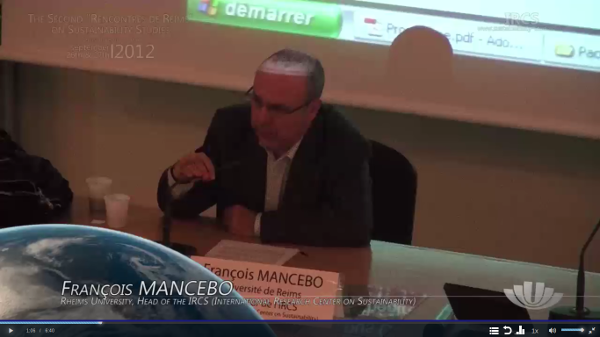
Inaugural Speech
10:45am – Scientific Assessment of Climate Change and Policy Options
Rajendra Pachauri, IPCC President, Director of the Tata Energy Research Institute – India
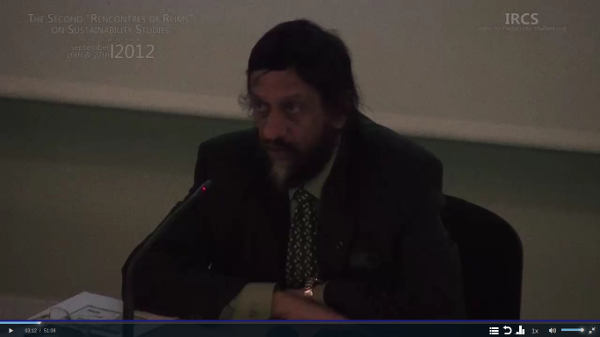
11:45 am – We Need to Go Back to the Visible Hand: Shared Responsability in Action on the Verge of the Anthropocen
Ignacy Sachs, EHESS, Honorary Professor
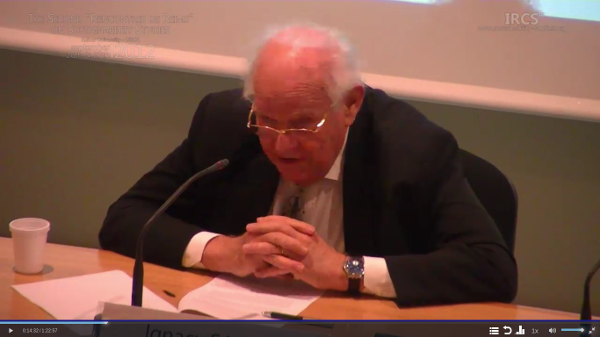
12:45 am – Lunch
First session
2:30 pm – Synthesis: Planning Development, conditions to Enhance Public Participation
Christian Comeliau, Graduate Institute of International & Development Studies of Geneva Honorary Professor
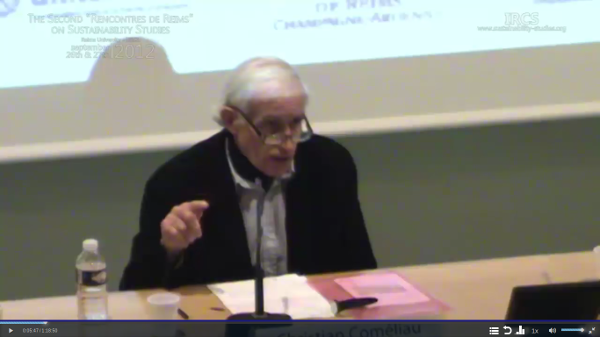
3:15 pm – 20 Years After, «Noble Lies» in Action for an Inclusive Green Economy?
Rathana Peou Van der Heuvel, Director of the Center for Sustainable Development – ULAB
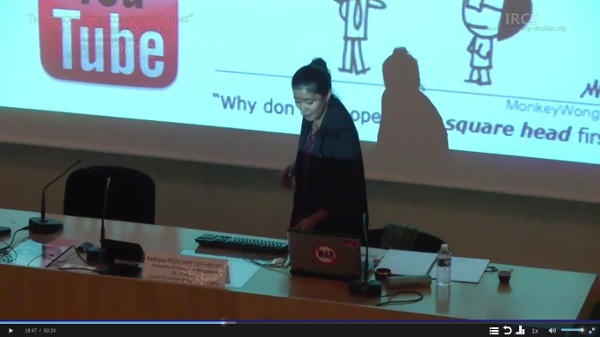
4:00 pm – Increasing Capacity to Adapt to Climate Change: the Co-construction of Collective Intervention
Christopher Bryant, Director of the Laboratoire de Développement Durable et Dynamique Territoriale at the Université de Montréal
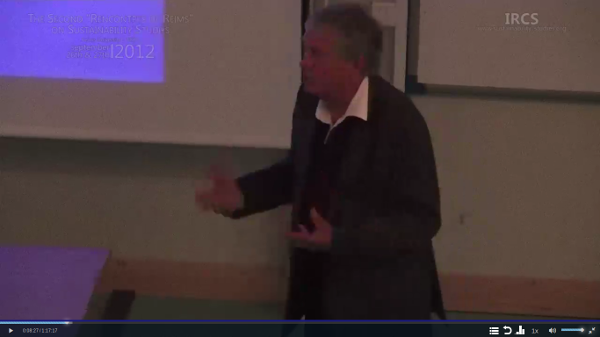
4:30 pm – UNITAR
Alex Mejia, Director of Local Development Programme of UNITAR (United Nations Institute for Training and Research)
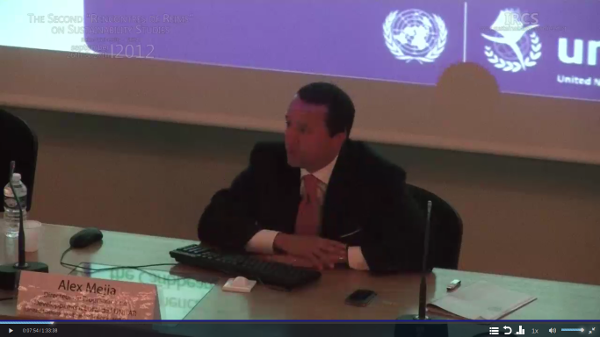
5:00 pm – End of the first day
Thursday 27 September 2012
Keynote speeches
10:30 am – Brazil’s New Governances: Integrating Sustainability into Public Policy
Ladislau Dowbor, Professor of Economics, Pontifical Catholic University of São Paulo
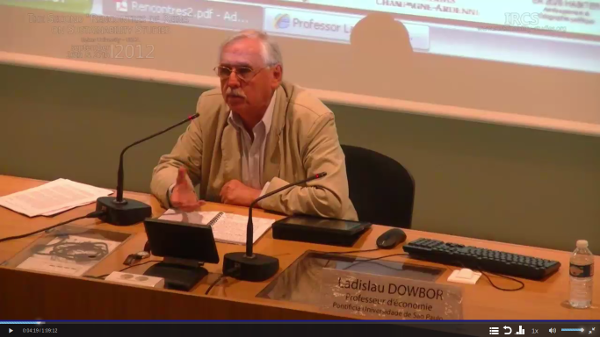
11:30 am – Crisis and Recovery in the World Economy: Towards a Sustainable Macroeconomics
[Read by François Mancebo] Deepak Nayyar, Past Rector at Nehru University (Delhi), Honorary Fellow at Balliol College, Oxford University
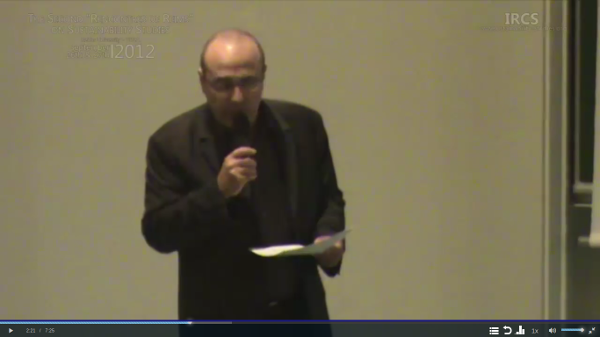
Second Session
2:30 pm – International Institutions for Sustainable Planning at the Regional Scale: Challenges and Perspectivese
Jon-Marco Church, UN, Ruffolo Fellow in Sustainability Science at Harvard University
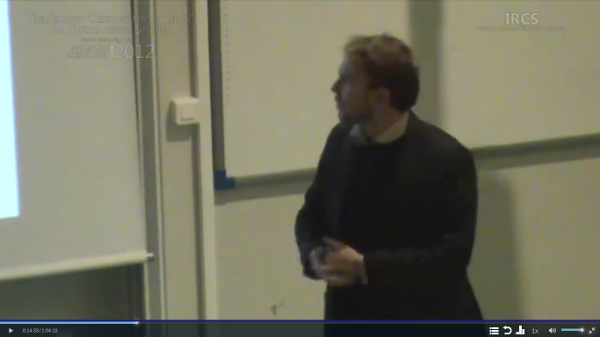
3:15 pm – How Metropolitan Governance Dynamics Meet Sustainability’s Requirements
Sharam Alijani, RMS Reims
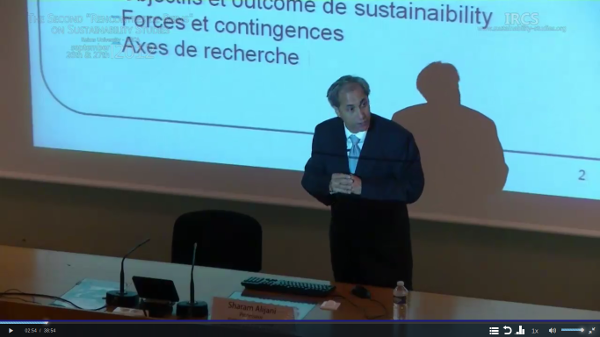
4:00 pm – Combining Social Justice and Sustainability in Environmental Services and Industrial Business: Suez Environnement
Thomas Perianu, Vice-President Strategic Analysis and Sustainable Development at Suez-Environnement
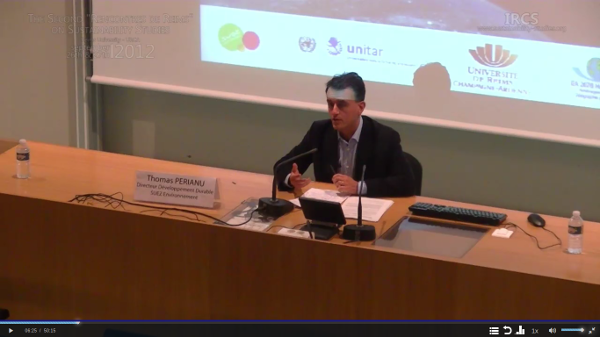
Second Session
4:45 pm – Transition to Sustainability and Governance: Addressing the Social Process of Decision Making
François Mancebo, Director of Reims University Sustainability Science Research Center
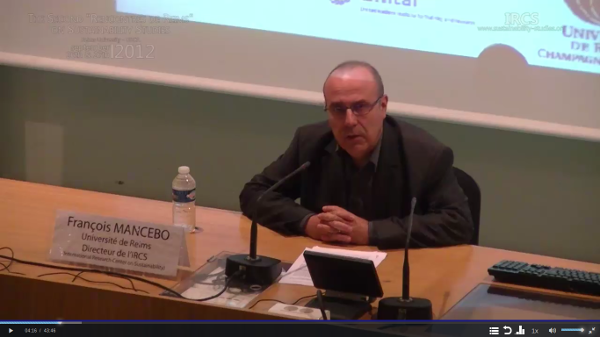
4:30 pm – End of working

